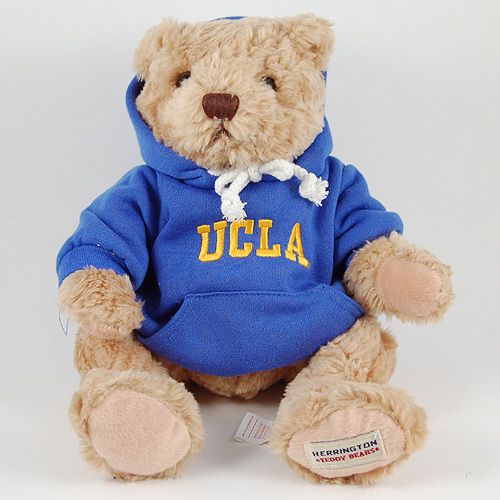With generous funding from the U.S. Department of Education’s Office of Special Education Programs (OSEP), the Center is undertaking a study with three elementary schools in Los Angeles. In this study, we are demonstrating that the earlier we can provide literacy assessment and the more we can target intervention to students’ specific needs, the more likely we are to help children reach their potential. More specifically, we are screening students in kindergarten and first grade and providing interventions to students who may be at-risk of dyslexia. Please contact Laura Rhinehart (laura.rhinehart@ucla.edu) or Rebecca Gotlieb (rgotlieb@ucla.edu) if you have any questions about this study.
Project Mission and Goals:
The model to be implemented
- Determine the ability of a new, digital screener to identify students with, or at-risk of, dyslexia.
- Determine the overall effectiveness of different systematic intervention programs for particular profiles of students identified at-risk of dyslexia.
- Improve the training of teachers in multiple, evidence-based reading interventions.
- Increase the frequency and efficacy of elementary school personnel to understand and implement assessment results and to communicate results to parents.
School and Student Characteristics
The project is being conducted in three elementary schools in Los Angeles. In the first year, the model was implemented in a school of choice, The UCLA Lab School. The following year, a public charter school and a Title 1 Public School, both within the Los Angeles Unified School District (LAUSD), began implementing our model. Across the schools, students are linguistically, socioeconomically, and racially diverse.
Products, resources, materials to be produced and added to this website, their intended uses, and their intended uses
Professional development materials for teachers
- Intended Uses: To train and support teachers in interpreting literacy assessment results, modifying instruction accordingly, and explaining results to parents and, when appropriate, children..
- Intended Users: School administrators, teacher coachers, elementary school teachers
Surveys to capture teachers’ background and training
- Intended Uses: To measure teachers’ attitudes and their training around students with dyslexia.
- Intended Users: Elementary school teachers
Dissemination
National Conference Presentations on the Model:
Office of Special Education Programs (OSEP) Project Leadership and Project Directors’ Conference
Improving elementary school support for students at risk for dyslexia (accepted)
Laura Rhinehart, Kristi Santi, Wendy Strickler, Melissa Weber-Mayrer, and Karen Harrison
August, 2024 in Washington, D.C.
Learning Ally
Toward Implementation of Early Differentiated Reading Intervention for Struggling Readers.
Rebecca Gotlieb and Laura Rhinehart
June, 2024 Virtual
Pacific Coast Research Conference
In Panel: Research to Practice: Engaging Educators to Improve Reading Instruction and Intervention Co-Chairs: Kristi L. Santi, Wendy Strickler, Laura Rhinehart, and Sohyun Kim
January, 2024 in San Diego, California
The Reading League
Toward Implementation of Early Differentiated Reading Intervention: Lessons Learned from a Research Practice Partnership.
Rebecca Gotlieb
October, 2023 Virtual
OSEP Project Leadership and Project Directors’ Conference
Lessons learned about implementing differentiated reading intervention.
Rebecca Gotlieb and Laura Rhinehart
July, 2023 in Washington D.C.
American Educational Research Association (AERA)
Presentation: Identifying Distinct Reading Profiles and Dyslexia Risk in Kindergarten Students
In Event: Literacy Learning for Students with Characteristics of Dyslexia or Other Reading Disabilities
Rebecca Gotlieb, Laura Rhinehart, and Maryanne Wolf
April, 2022 in San Diego, California
Pacific Coast Research Conference
Panel: Three Approaches to Support Effective Reading Instruction and Better Identification of Dyslexia
Rebecca Gotlieb, Laura Rhinehart, and Maryanne Wolf
February, 2022 in San Diego, California
OSEP Project Leadership and Project Directors’ Conference
Session Title: Model Demonstration Projects for Identification of Students with Dyslexia
Rebecca Gotlieb, Laura Rhinehart, and Maryanne Wolf
July, 2021, Virtual
OSEP Project Leadership and Project Directors’ Conference
A Digital Literacy Screener Can Identify Distinct Reading Profiles and Dyslexia Risk in Kindergartners Via Virtual and In-Person Administration.
Rebecca Gotlieb and Laura Rhinehart
July, 2021 Virtual
Slide deck describing the model
Peer-reviewed Publications Related to the Model:
Gotlieb, R. J. M., Kim, S. A., Rhinehart, L. V. (In Preparation). Reading anxiety is associated with reading performance but predicted by a distinct path of early neurocognitive and vocabulary differences.
Wolf, M., Gotlieb, R. J., Kim, S. A., Pedroza, V., Rhinehart, L. V., Tempini, M. L. G., & Sears, S. (2024). Towards a dynamic, comprehensive conceptualization of dyslexia. Annals of Dyslexia, 1-22. https://doi.org/10.1007/s11881-023-00297-1
Kim, S. A., Gotlieb, R., Rhinehart, L. V., Pedroza, V., & Wolf, M. (2023). A Validity Study of the Digitized Version of the Rapid Automatized Naming Test. Journal of Psychoeducational Assessment, 0(0). https://doi.org/10.1177/07342829231218582
Gotlieb, R., Rhinehart, L., & Feuerman, R. (2023). Towards implementation of differentiated reading interventions: Lessons learned from a research-practice partnership. The Reading League Journal, 23-29.
Rhinehart, L. & Gotlieb, R. (2023). English Learners’ Performance on a Measure of Dyslexia Risk. Learning Disabilities Research & Practice. https://doi.org/10.1111/ldrp.12316
Wolf, M., Gotlieb, R., Sohyun, K., Pedroza, V., Rhinehart, L., & Sears, S. (2024) Towards a Dynamic, Comprehensive Conceptualization of Dyslexia. Annals of Dyslexia. https://doi.org/10.1007/s11881-023-00297-1

